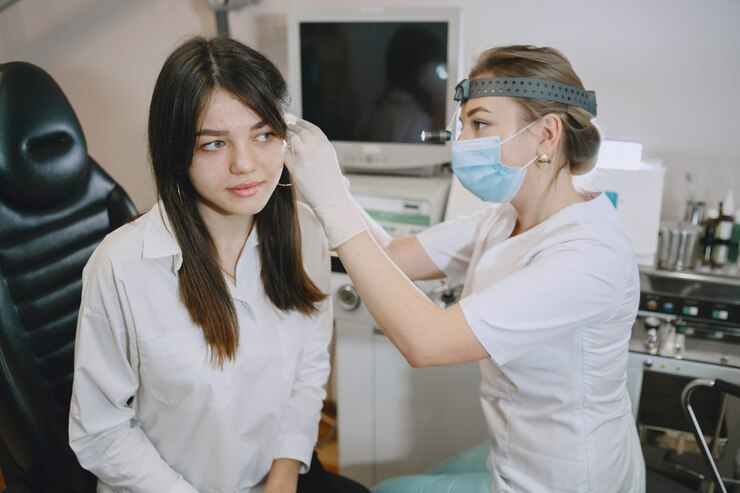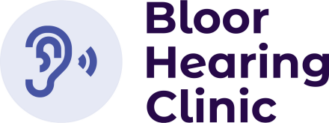
Our Blog
Does OHIP Cover The Cost of Hearing Aids in Ontario?
The Ontario Health Insurance Plan (OHIP) ensures residents have access to essential healthcare, including eye exams, blood tests, prescription medications, and hearing tests. While this primary health insurance program in Ontario offers various medical services, there can be some confusion about what’s covered.

For hearing healthcare, OHIP covers a diagnostic hearing test as long as it meets certain eligibility criteria. This also goes for seniors who qualify for OHIP. In this article, we’ll dive into the specifics of OHIP coverage for hearing tests and hearing aids.
Does OHIP Cover Hearing Tests?
Generally, OHIP covers diagnostic hearing tests conducted by an Ear, Nose, and Throat (ENT) specialist in their clinic or a qualified physician. If your family physician suspects hearing loss and refers you to an ENT for a hearing assessment, OHIP might cover your test. However, if you seek out a hearing test at a private clinic on your own, this health insurance isn’t likely to cover it.
Here’s an important caveat: OHIP won’t cover hearing tests requested by a non-medical professional or third parties, such as for:
Employment purposes
Workplace safety
School board for learning assessments
Veterans’ affairs
Conversely, OHIP coverage does not include hearing-related tests provided by an audiology clinic in Toronto, Ontario, including hearing evaluation and re-evaluation. Other services or tests excluded from OHIP coverage are:
Tinnitus masker device evaluation
Bone-anchored hearing aid fitting
Middle ear function testing
Electrophysiological testing
Hearing aid examination
Hearing aid repair
There is a key reason for this distinction. These excluded services generally don’t require direct supervision from a physician. OHIP prioritizes coverage for medically necessary procedures overseen by qualified medical professionals.
Hearing Aid Coverage Under OHIP
OHIP’s coverage also doesn’t directly apply to certain health-related costs, including hearing aids. However, individuals seeking financial support for hearing assistive devices may explore other options such as government-funded alternatives.
A government program called the Assistive Devices Program (ADP) offers some financial assistance. The ADP provides a contribution towards hearing aids cost, up to 75% (maximum of $500) per hearing aid plus ear mold and dispensing fee.
To qualify for this program:
You must be a resident of Ontario, Canada.
You must possess a valid Ontario health card.
You must have a referral from a qualified healthcare professional (ENT specialist or family doctor).
Registered hearing instrument practitioners must conduct the assessment.
Applicants have a long-term hearing disability requiring hearing aid use for at least six months.
Those already receiving financial assistance for Toronto hearing aids from programs like Veterans Affairs or the Workplace Safety and Insurance Board (WSIB) cannot qualify for ADP. Veterans Affairs Canada offers financial support for hearing aids to eligible veterans with hearing loss.
The Cost of a Hearing Test Must Meet Certain Criteria to be Covered by OHIP
Even when an ENT specialist conducts your hearing test, you must meet specific criteria for OHIP to cover the cost. The test needs to be a diagnostic hearing assessment, meaning it goes beyond a simple screening and provides a detailed evaluation of your hearing abilities. Additionally, OHIP considers your medical history to determine if the test is medically necessary.
Below are specific assessments included in diagnostic hearing tests. If hearing loss is present, test results should determine whether it is:
Temporary or permanent: This helps decide the most appropriate course of treatment.
Conductive, sensorineural, or mixed: Understanding the type of hearing loss helps pinpoint the cause and guide treatment options. Conductive loss may require surgery, while sensorineural loss may require hearing aids or cochlear implants.
Affected in the inner ear or ear canal: The location of the hearing loss helps determine the cause and the most effective treatment strategies.
Extent of the hearing loss (range of frequency): This identifies the specific sound frequencies a person has difficulty hearing. This information is crucial for programming hearing aids or other assistive devices.
Eardrum movement: This assessment helps identify potential issues in the middle ear that might be contributing to the hearing loss.
It’s always best to check with your doctor or hearing test Toronto clinics beforehand to confirm OHIP coverage. They can advise you on the specific tests included in your assessment and suggest alternatives based on your situation.
Ask Your Hearing Test Centre if You Qualify for ADP Funding for Hearing Aids
While OHIP doesn’t directly cover hearing aids, the ADP program can significantly reduce the financial burden. Hearing test centres can often guide you through the ADP application process and determine your eligibility.
If you suspect hearing loss, don’t hesitate to schedule a hearing test appointment with your doctor or a qualified hearing professional. Here are some of the next best steps:
Consult your family doctor: Discuss your concerns about your hearing and get a referral for a hearing assessment if needed.
Research hearing test providers: Look for clinics with a qualified audiologist who can conduct diagnostic hearing tests.
Contact your hearing test centre: Inquire about the OHIP policy for your specific test and explore the possibility of alternative funding for hearing aids.
Consider additional resources: Reach out to organisations specialising in hearing health for support and information.
Taking a proactive approach to your hearing health ensures you have the resources and support necessary for optimal hearing.
Are There Any Other Sources of Funding for Hearing Aids?
Private health insurance plans offered by employers or individual providers may offer coverage for hearing aids, hearing tests, and related services. Contact your insurance provider to understand the specific details of your plan.
There are also social services in Ontario that provide one-time hardship funds. Combined with OHIP and ADP financial assistance, this can significantly help cover costs for entry-level hearing aids. Most social services assistance will require a hearing test, recommendation, and hearing aid quote.
Besides the assistive devices program mentioned, you may also consider inquiring about the Ontario Disability Support Program (ODSP) and several workplace medical insurance programs. Note that private or individual insurance policies and guidelines may change from year to year. Always check for updated information from your insurance provider.
